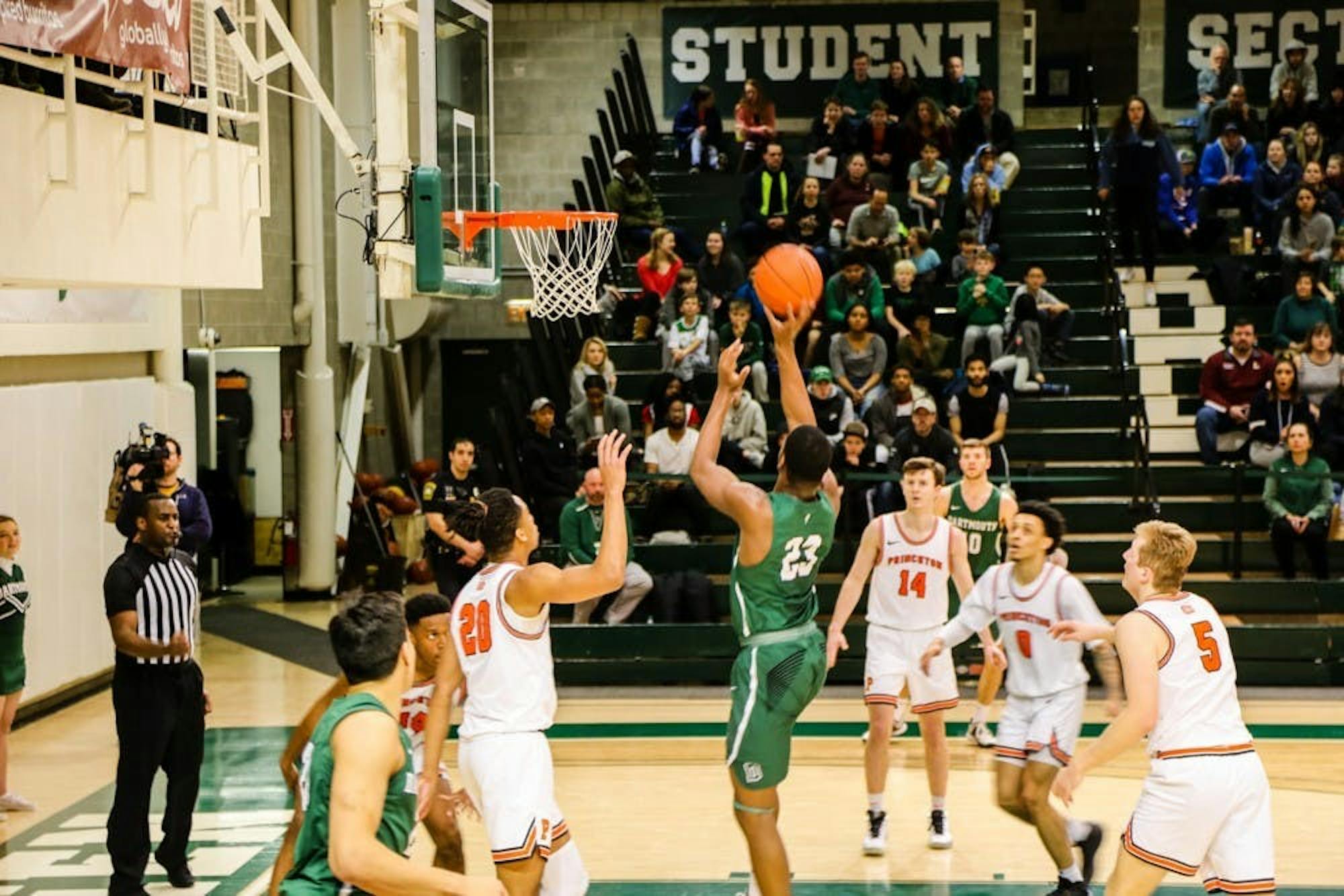As the Princeton Tigers advanced last week into the Sweet 16 round of the NCAA March Madness tournament, members and fans of the Ivy League watched anxiously to see how far our league champs could take their run. A miraculous two-game tournament run, beginning with a shocking upset over two-seed Arizona, catapulted the men’s team into a national phenomenon, even in a year with so many other upsets. Yet, despite an unfortunate exit last Friday to three-seed Creighton University in the Sweet 16, the unexpectedness of Princeton’s success seems rooted in something more than their status as a 15-seed in the tournament.
The level of surprise Princeton’s performance garnered may be a reflection of how students on Ivy League campuses — from Dartmouth to Princeton — see their own sports teams. On the surface, it seems there is a general lack of interest in athletics, at least in comparison to the emphasis placed on academics.
“I don’t feel like there’s often a huge culture around sports,” Princeton student Tanner McNamara ’26 said. “The typical student is too busy dealing with all their own extracurriculars to go spend a couple hours watching someone else’s.”
Yet, this tournament has captivated many of his friends’ interests, particularly those who usually steer clear of sporting events. With thrilling major upsets seemingly occurring every hour, the possibility of one’s college embarking on a Cinderella run often makes many otherwise indifferent students interested in March Madness.
“Most of my friends are mainly excited by the novelty of our team making it so far,” McNamara added.
But why is it so surprising that our league champions have had success on the national stage? The venue of March Madness aligns, partially, with what the Ivy League seems to attract: top competitors, academically and athletically, who have proved they are capable of performing under pressure. Yet, those both inside and outside the Ivy League have been stunned by Princeton’s success. Although neither of Dartmouth’s basketball teams made an appearance at this year’s Ivy Madness — the league championship that determines bids to the greater NCAA tournament — students from Dartmouth feel a certain solidarity with the Tigers’ run in the tournament.
“I just want them to keep representing the Ivies strong and doing their thing,” Paul Hudson ’23, member of the Dartmouth varsity basketball team, said prior to Princeton’s loss on Friday.
March Madness is a one-of-a-kind athletic PR opportunity for any collegiate sports program, one that Princeton has capitalized on. Princeton students such as Nolan Musslewhite ’25 marveled at the widespread news coverage of Princeton’s run.
“Reading all the coverage on it, it’s this stereotype of the ‘nerds strike back’ almost,” he said. “But I do think it’s been good for Ivy League athletics in general.”
Emerson Tiwang ’25, another Princeton student who traveled to Louisville to watch last Friday’s 11-point loss against Creighton, added that he thinks Ivy league sports are underrated.
“People don’t give enough appreciation to the Ivy League … our professors don’t play, so you still have to get your work done,” he said. “And you also have to perform at a world-class level. We send kids to the NCAA championship every year in sports like soccer, rowing and fencing.”
For busy college students, it may take the success of one’s college on a stage like March Madness to make some of us pay attention to our school’s athletic excellence. But if it takes success on the national level for students to take interest in a popular sport such as basketball, what might it take for less conventional or publicized sports?
Here at Dartmouth in the fall, the women’s rugby team pushed for more recognition of their dominant success on the national level, as they campaigned for more student body attendance at their NCAA Division I Championship match against Harvard. Although they have been a perennial force in women's collegiate rugby for years, they have yet to draw the attention they deserve.
“I think it’s [because of] a combination of discrepancies between men’s and women’s sports and their coverage in the world,” Hannah Maccarone ’26, a member of Dartmouth women’s rugby said. “[Rugby] is also definitely a less well-known sport. People want to watch sports they played in high school, that they watch with their family.”
Although there is still work to be done to generate more recognition for programs such as women’s rugby, on a broader scale, the success of Dartmouth, Princeton and the other Ivy teams are not mutually exclusive. If anything, a more competitive Ivy League gives all of our teams chances to model their athleticism and competitiveness on the national stage, attracting progressively better recruits.
Whether we like it or not, there’s a certain link between enthusiasm for our athletics and a recognizable, beyond-our-campus pride. For many student supporters, a rocky start to a Big Green team’s season can create an almost complete lack of interest — and with the fewest undergraduates by number, each of us plays an even greater role in the atmosphere at sporting events. Although upperclassmen like Hudson recognize that Dartmouth can appear to be an “overlooked Ivy” due to its small size and remoteness of location, he emphasizes that we have something to learn and emulate from our peer institutions.
“I hope one day we could have an athletic culture more like Princeton [right now],” Hudson said.
The Ivies may well be entering an era of more serious athletic consideration, certainly in men’s basketball. As we watch Princeton’s success this year from Hanover, I see a more sweeping movement of recognition of the athletic success of the Ivy League. And in that, Dartmouth should not be overlooked.




